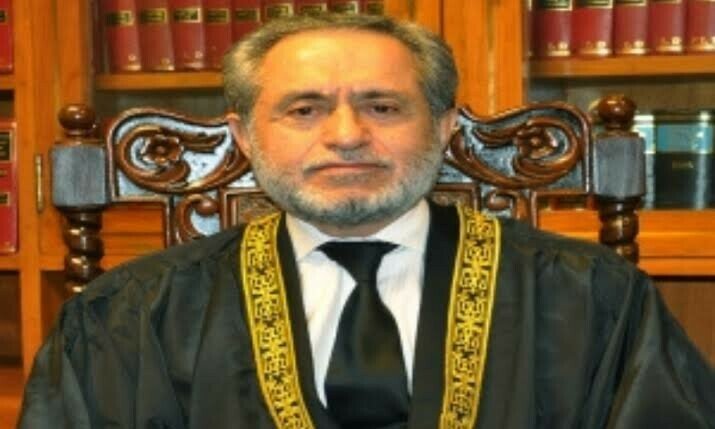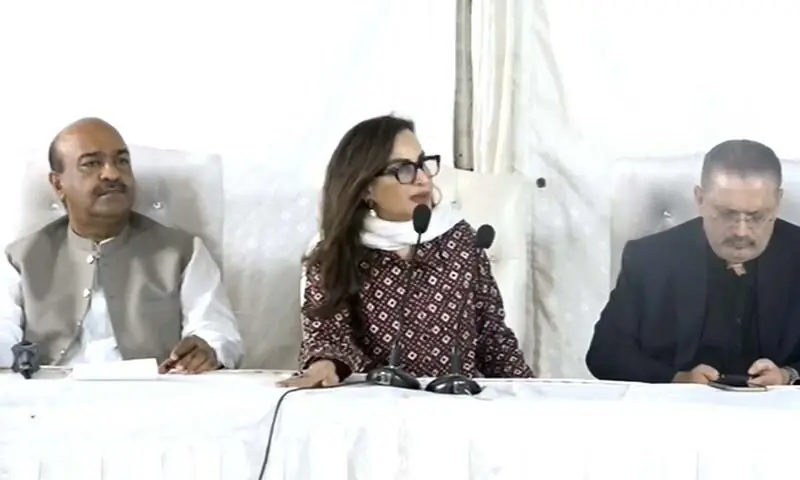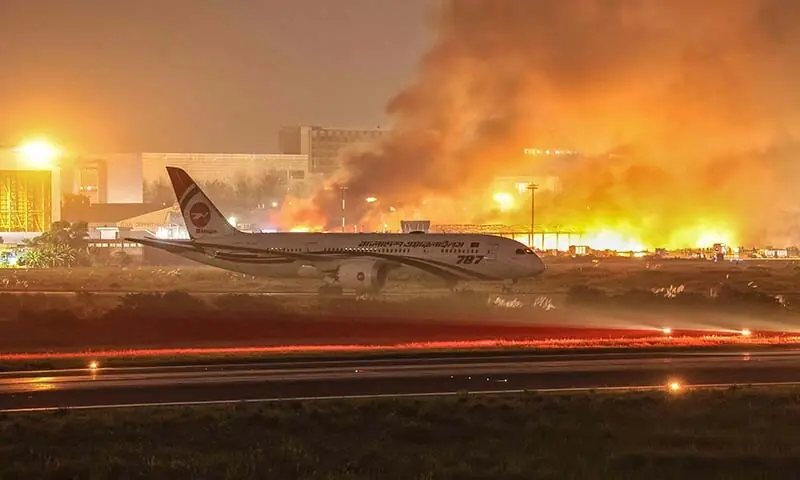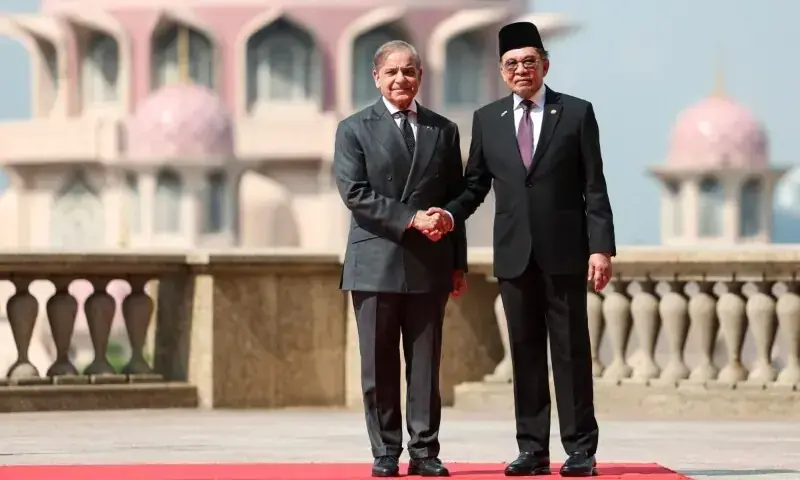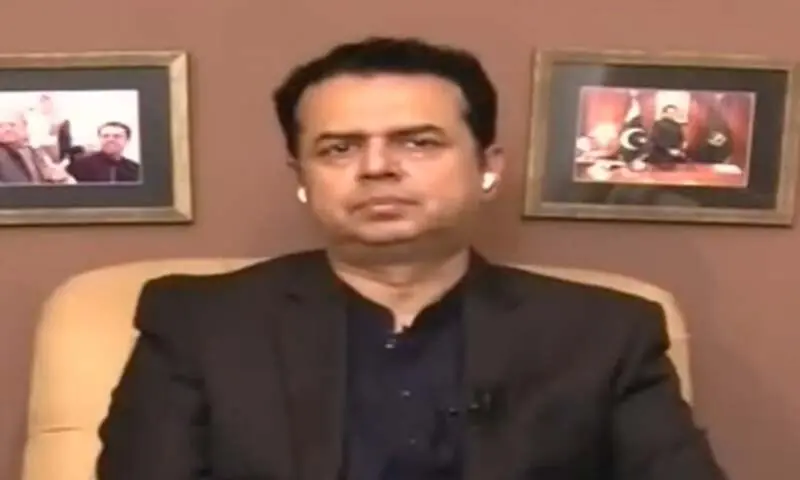• Justice Mandokhail wonders how much experience presidents have in meting out harsh punishments.
• Justice Hilali asks how military courts assumed jurisdiction when FIRs were lodged under PPC, ATA
• The government explains that it charged only 105 people under OSA, PAA based on “strong evidence” in 9 cases in May.
ISLAMABAD: A Supreme Court judge on Friday questioned the competence of military court presidents and asked whether they have enough legal experience to impose harsh punishments.
“I have been in the judiciary for the last 34 years and I am still learning,” observed Judge Jamal Khan Mandokhail of the constitutional court during a hearing in which the federal government justified the trial of civilians by military courts in the violent events on May 9. protests, when PTI workers attacked military installations.
Justice Mandokhail also questioned whether the president of the military court was an experienced and knowledgeable judicial officer who understood the repercussions of imposing serious punishments.
Appearing before the seven-judge bench, Additional Attorney General (AAG) Chaudhry Aamir Rehman said that only 105 individuals out of 5,000 suspects were charged on the basis of “strong evidence” under the Official Secrets Act ( OSA) and Pakistan Army Act (PAA). 1952.
He explained that 35 FIRs had been registered following the violence, which included attacks on military installations.
The government’s explanation came as the court reviewed intrajudicial appeals against the Supreme Court’s five-judge order of Oct. 23, 2023, quashing trials of civilians in military courts.
Justice Musarrat Hilali questioned how military courts could assume jurisdiction when the FIRs were registered under the Pakistan Penal Code (PPC) and the Anti-Terrorism Act (ATA).
Regretting that despite repeated instructions, the federation had not provided copies of the FIR registered against the convicts, AAG Rehman pointed out that three FIRs, including one with OSA sections, had been submitted to the court.
Khawaja Haris Ahmed, representing the Ministry of Defence, assured the court that full records of the trial would be presented. He explained that additional charges could be added during investigations and noted that the Supreme Court had previously allowed military court convictions to be challenged in higher courts.
Justice Jamal Khan Mandokhail observed that while interpreting laws, the intention of the highest judiciary should always be to benefit the citizens. However, the lawyer explained that the benefit of citizens was always related to the benefit of the State and not for a small segment of people who undermine the security and interests of the State.
“It is an established legal principle that instead of striking down a disputed law, the priority of the courts should always be to eliminate the conflict, if any, by saving the legal instrument,” the lawyer said.
Justice Mandokhail regretted that the high court could not analyze the merits; Rather, the judiciary would be helpless if military courts, ignoring the requirements of the criminal justice system, sentenced an accused civilian to death based on false evidence or lack of evidence.
“We must tread carefully in deciding the present matter in a way that reduces the jurisdiction of military courts so that it applies to fewer and fewer civilians,” Judge Mandokhail emphasized.
The lawyer, however, responded that the courts could intervene if the military courts’ assumption of jurisdiction was based on mala fide (in bad faith) or coram non judice (not before a judge) and without any legal authority.
Referring to the 2016 Said Zaman Khan case, the lawyer explained that the Supreme Court had held that any conviction handed down by military courts could be challenged before the higher judiciary, adding that the decision also highlighted that some rights could not be made available to the accused. . facing trials in military courts.
The lawyer argued that the jurisdiction of military courts applied only to cases that directly impacted national security under Section 2(1d) (i and ii) of the PAA. He clarified that crimes such as hijacking fall under the ATA and not the PAA, citing a previous plane hijacking case in which the Supreme Court ruled that the lives of passengers were not at risk.
Judge Hilali expressed concern about military court procedures, noting that presidents do not announce sentences themselves, leaving decisions to commanding officers. “How can an official who has not heard the matter issue a ruling?” Judge Hilali questioned.
He pointed to the tense security situation in Khyber Pakhtunkhwa, where cases of attacks on army personnel were not referred to military courts.
Justice Muhammad Ali Mazhar observed that military courts around the world conduct trials presided over only by military officers. The lawyer explained that these military officers had experience in conducting trials.
Justice Naeem Akhtar Afghan observed that there was a general perception that the trial in the military court was limited only to the extent of punishment, and stressed that it would have been appropriate if the stages of trial in the military courts had been explained. He recalled that he had seen such cases in the Balochistan High Court and knew that a lawyer of his choice could be hired at the court-martial.
Published in Amanecer, January 11, 2025.




